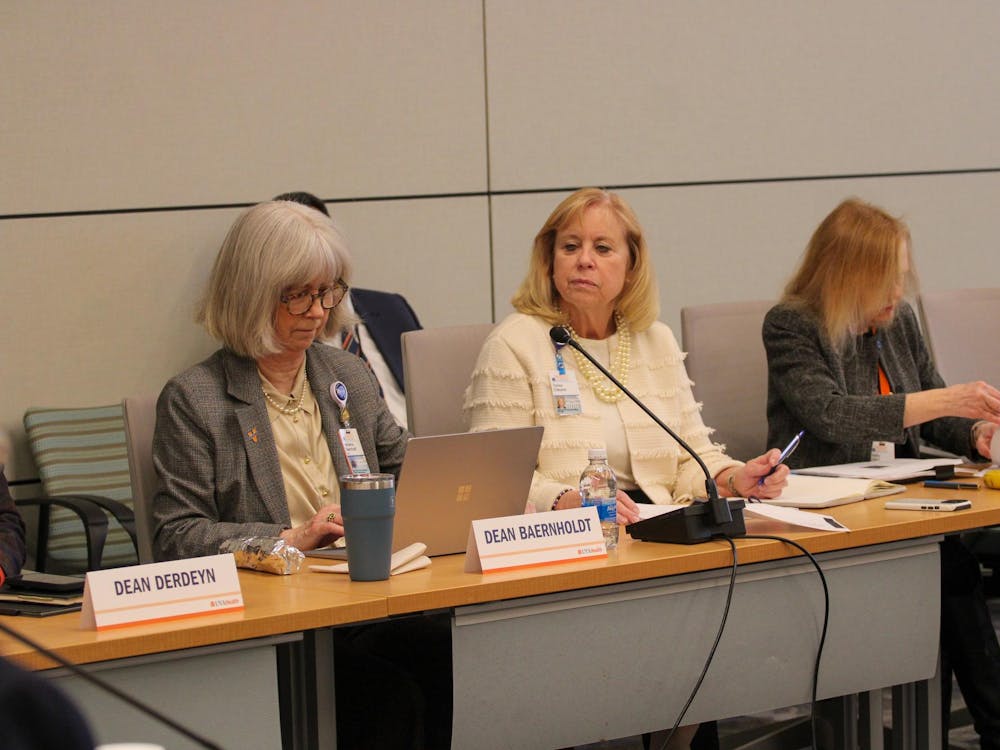A study presented yesterday at the American Educational Research Association's annual conference in Vancouver found college students who formed interracial friendships by the end of their first year were more likely to demonstrate liberal views on issues of race.
University of Iowa Prof. Ernest Pascarella, and Jesse Rude and Gregory Wolniak, principal research analysts for the National Opinion Research Center at the University of Chicago, authored the study.
According to the report, students' racial attitudes are most impressionable in their first year of college, as "contrary to expectation, the majority of students do not report more progressive racial attitudes at later points in college compared to their attitudes at college entry."
Rude said the formation of interracial friendships, discussion with peers of other races, discussion with faculty members whose views differ from the individual and taking courses which portray diverse perspectives were four factors positively associated with an improvement of racial attitudes. He said the number of courses students took which addressed diversity positively correlated with their improvements in racial attitudes.
"[The results were] what you might expect," Rude said. "Students who reported more frequent interracial friendships and more frequent discussions with people of a different race reported improvements with racial attitudes over time."
Fourth-year College student Evan Shields, executive chair of the Minority Rights Coalition, said racial attitudes at the University vary depending on the individual, but developing cross-culture friendships is important to improving race relations.\n"It depends on who you are and how you go about U.Va.," Shields said. "I've seen different racial incidents occur and people respond in different ways."
Maurice Apprey, dean of the University's Office of African-American Affairs, said he was not surprised by the findings because past experiences and attitudes play a role in cross-cultural relations for students.
"We have all this baggage [from the past], but it doesn't mean that those sedimentations will not be reactivated," he said. "Even though we are changing, human beings are slow in changing."
Apprey said observers should expect a slow, progressive attitude change throughout the college years, potentially coupled with the occasional return of repressed memories of poor interracial experiences.






